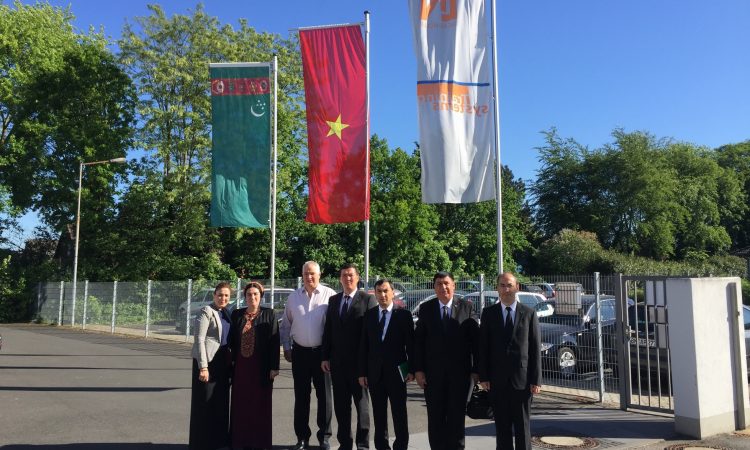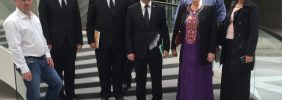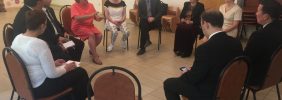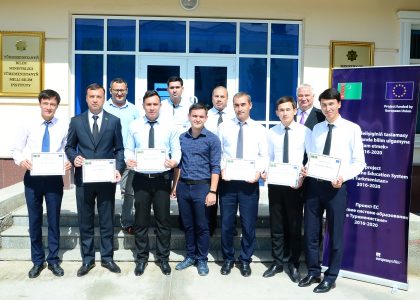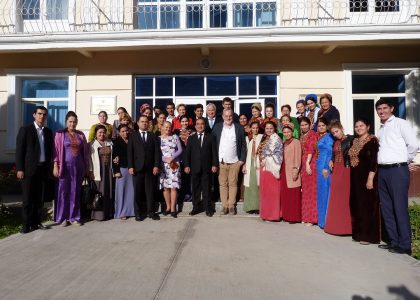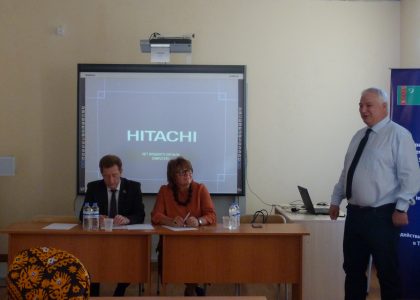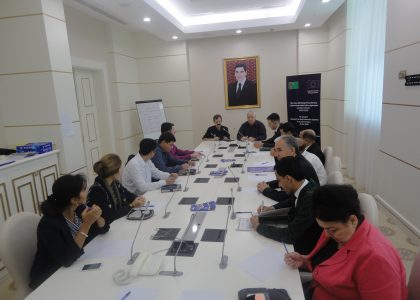From 6 to 13 of May, 2018, the EU funded project “Support to the Education Sector of Turkmenistan” organised a first study tour to familiarise with European education systems. On the eve of the visit, the Ministry of Education appointed seven participants from the National Institute of Education, universities, and the Ministry itself. 16 meetings in Belgium, Germany and Poland allowed to get a first-hand impression from Kindergarten to a university, from skills development in a beer brewery to the business approach of an educational start-up, from the German-Turkmen Forum to the Turkmen embassy in Berlin, and from provider of educational equipment (Lucas Nülle, pictured) to the Margiana exhibition about the ancient civilization on Turkmen soil with five million expected visitors. For the first time, a Turkmen delegation visited the Federal Institute for Vocational Education and Training in Bonn, learning about its impressive range of services in supporting reform efforts in former Soviet Union countries.
Granting the permit for the tour illustrates that the Turkmen authorities are increasingly ready to sync with the outside world. In the rest of the world, the consensus is strengthening that getting the right mindsets is a challenge of the unfolding digital era and a crucial success factor to modernise education.
The Ministry and the participants appraised the results of the study tour. Eventually, its success will be defined by its follow-up: New contacts have been established with the Agricultural University of Zielona Gora, Poland, the EU-funded „Lubuski Centre for Innovation and Agricultural Implementation of State School of Higher Vocational Education” in Sulechów, Poland, the network of bilingual schools “Mitra”, the educational start-up Wicastr, and other. The task is to ignite innovative activities that are compliant with the Terms of Reference and make a contribution to the project’s objective “to further support the Government of Turkmenistan in the creation of a modern education system in line with international educational standards.”
